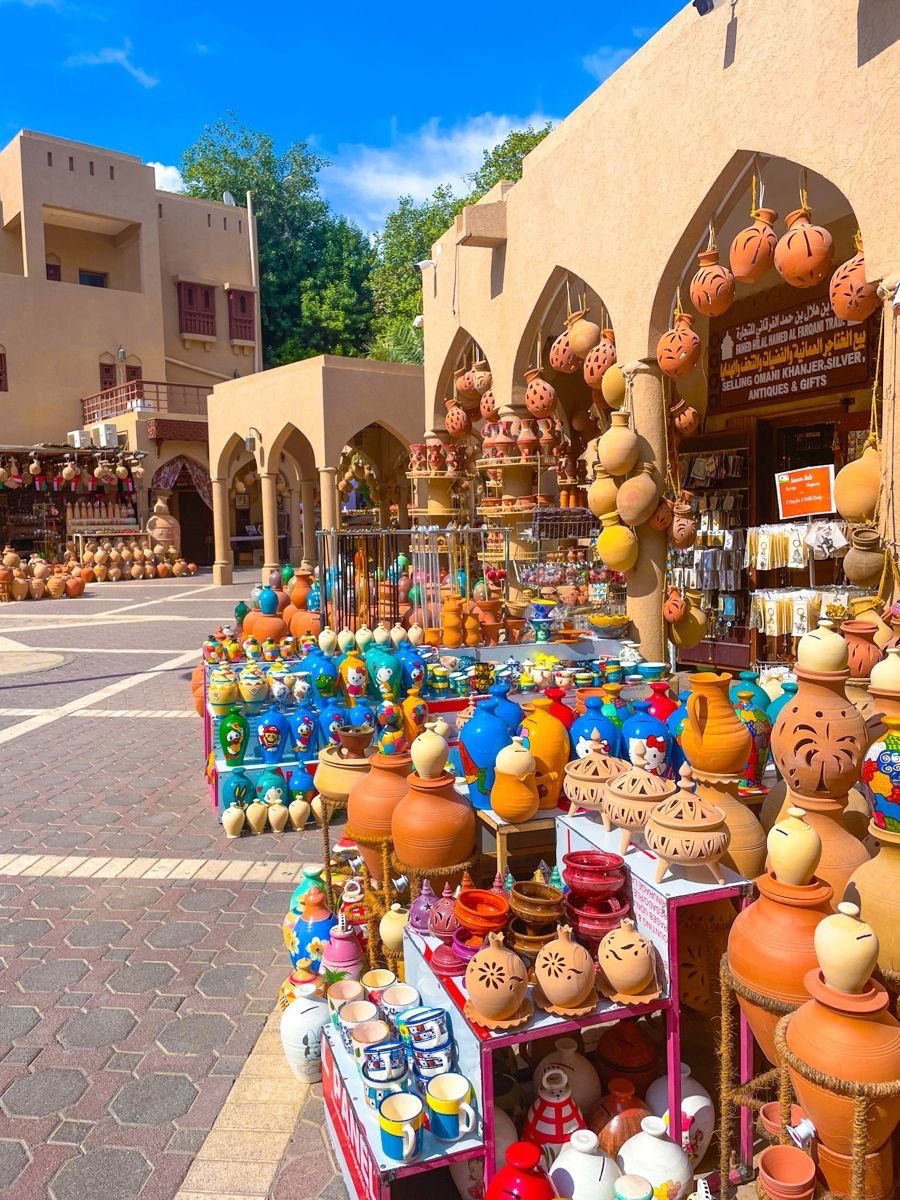No products in the cart.
What Is Omani Culture Like and What Should You Expect?

Omani culture represents a fascinating blend of ancient Arabian traditions and modern cosmopolitan influences, creating a unique cultural identity that warmly welcomes visitors while maintaining deep-rooted customs. Oman's culture is characterized by exceptional hospitality, respect for tradition, and a remarkably peaceful and welcoming atmosphere that makes it an ideal introduction to Middle Eastern culture.
Core Cultural Values and Social Structure
Hospitality as a Cultural Foundation
Omani hospitality is legendary and forms the cornerstone of social interaction. Visitors frequently experience:
- Invitations to share meals with local families, often spontaneously offered
- Assistance with directions and travel advice, with locals going out of their way to help
- Welcome rituals including Arabic coffee (Kahwa) and dates as symbols of friendship
- Genuine interest in visitors’ experiences and wellbeing
Family and Community Values
Family remains central to Omani society, influencing daily life and social interactions. Key aspects include:
- Respect for elders as sources of wisdom and tradition
- Community cooperation evident in traditional practices and celebrations
- Collective responsibility for guests and community members
- Preservation of traditions through family and community networks
Islamic Influence and Religious Customs
Daily Religious Practices
Islamic values shape much of daily life in Oman, creating a rhythm that visitors quickly notice:
- Five daily prayer calls marking the passage of time throughout the country
- Friday as the holy day affecting business hours and social activities
- Ramadan observances that impact dining and social schedules (seasonal consideration)
- Respect for prayer times incorporated into business and social activities
Religious Tolerance and Inclusivity
Oman demonstrates remarkable religious tolerance, with:
- Welcoming attitude toward non-Muslim visitors
- Interfaith respect and peaceful coexistence
- Cultural education opportunities for visitors to learn about Islamic practices
Traditional Arts, Crafts, and Cultural Expression
Artisanal Traditions
Oman maintains vibrant artisanal traditions that visitors can experience:
- Silver jewelry crafting in places like Nizwa, featuring traditional designs
- Pottery making using techniques passed down through generations
- Frankincense cultivation and processing, connecting to ancient trading traditions
- Traditional weaving producing textiles and carpets with cultural significance
Music and Performance
Traditional Omani music reflects the country’s cultural diversity:
- Folk music traditions incorporating Arabian, African, and Asian influences
- Traditional dance performed during festivals and celebrations
- Storytelling traditions preserved in coffee house and community gatherings
Language and Communication
Linguistic Landscape
Arabic serves as the official language, but Oman’s international outlook ensures accessibility:
- English widely spoken in urban areas and tourist destinations
- Multilingual population reflecting historical trading connections
- Regional dialects showcasing Oman’s diverse cultural influences
- Basic Arabic phrases appreciated by locals when attempted by visitors
Communication Etiquette
- Polite greetings like “Salam Alaykum” (peace be upon you) are warmly received
- Respectful interaction with emphasis on courtesy and patience
- Photography etiquette requiring permission before photographing people
Traditional Food Culture and Dining Customs
Communal Dining Traditions
Omani dining emphasizes community and sharing:
- Large platter serving encouraging family-style dining and conversation
- Right-hand eating custom following traditional Arabian etiquette
- Shared meal significance as expressions of friendship and hospitality
- Post-meal coffee rituals featuring Kahwa and dates
Culinary Heritage and Significance
Food holds deep cultural meaning in Omani society:
- Special occasion dishes like Shuwa prepared for celebrations and honored guests
- Seasonal eating patterns reflecting agricultural cycles and religious observances
- Spice trading heritage evident in complex flavor profiles and cooking techniques
- Hospitality through food with offering meals to guests as cultural obligation
Modern Life and Traditional Balance
Contemporary Omani Society
Modern Oman successfully balances progress with tradition:
- Educational advancement with high literacy rates and international universities
- Technological adoption while maintaining cultural practices
- Women’s participation in professional life alongside traditional roles
- Urban development respecting architectural heritage and cultural landscapes
Lifestyle and Social Pace
The Omani pace of life emphasizes quality over speed:
- Relaxed social interactions allowing time for meaningful conversation
- Emphasis on personal relationships over purely transactional interactions
- Flexibility in scheduling accommodating social and religious obligations
- Appreciation for simple pleasures like sharing coffee and conversation
Cultural Etiquette for Visitors
Social Interaction Guidelines
Respectful behavior enhances cultural exchange:
- Modest dress demonstrating respect for cultural values
- Polite behavior in all interactions, with patience and courtesy
- Respect for local customs particularly around religious sites and practices
- Open-minded attitude toward different cultural approaches
Gift-Giving and Social Customs
- Accepting hospitality graciously when offered food, drink, or assistance
- Removing shoes when entering homes, following local custom
- Showing appreciation for cultural sharing and local knowledge
Festivals and Cultural Celebrations
Social Interaction Guidelines
Respectful behavior enhances cultural exchange:
- Modest dress demonstrating respect for cultural values
- Polite behavior in all interactions, with patience and courtesy
- Respect for local customs particularly around religious sites and practices
- Open-minded attitude toward different cultural approaches
Gift-Giving and Social Customs
- Accepting hospitality graciously when offered food, drink, or assistance
- Removing shoes when entering homes, following local custom
- Showing appreciation for cultural sharing and local knowledge
Regional Cultural Variations
Geographic Cultural Diversity
Different regions offer varying cultural experiences:
- Northern Oman (Muscat region) – Cosmopolitan culture with international influences
- Interior regions (Nizwa area) – Traditional Arabian culture with strong historical connections
- Southern Oman (Salalah) – Unique monsoon culture with different agricultural traditions
- Coastal areas – Maritime culture reflecting Oman’s seafaring heritage
The welcoming atmosphere of Omani culture creates an environment where visitors feel comfortable asking questions, participating in local customs, and forming genuine connections with local people. This openness, combined with the country’s stability and safety, makes Oman an excellent destination for cultural exploration and meaningful travel experiences.
Understanding and respecting Omani culture enriches every aspect of visiting the country, from dining experiences to historical site visits, creating memories that extend far beyond typical tourist activities.
Have more questions? Contact us.



